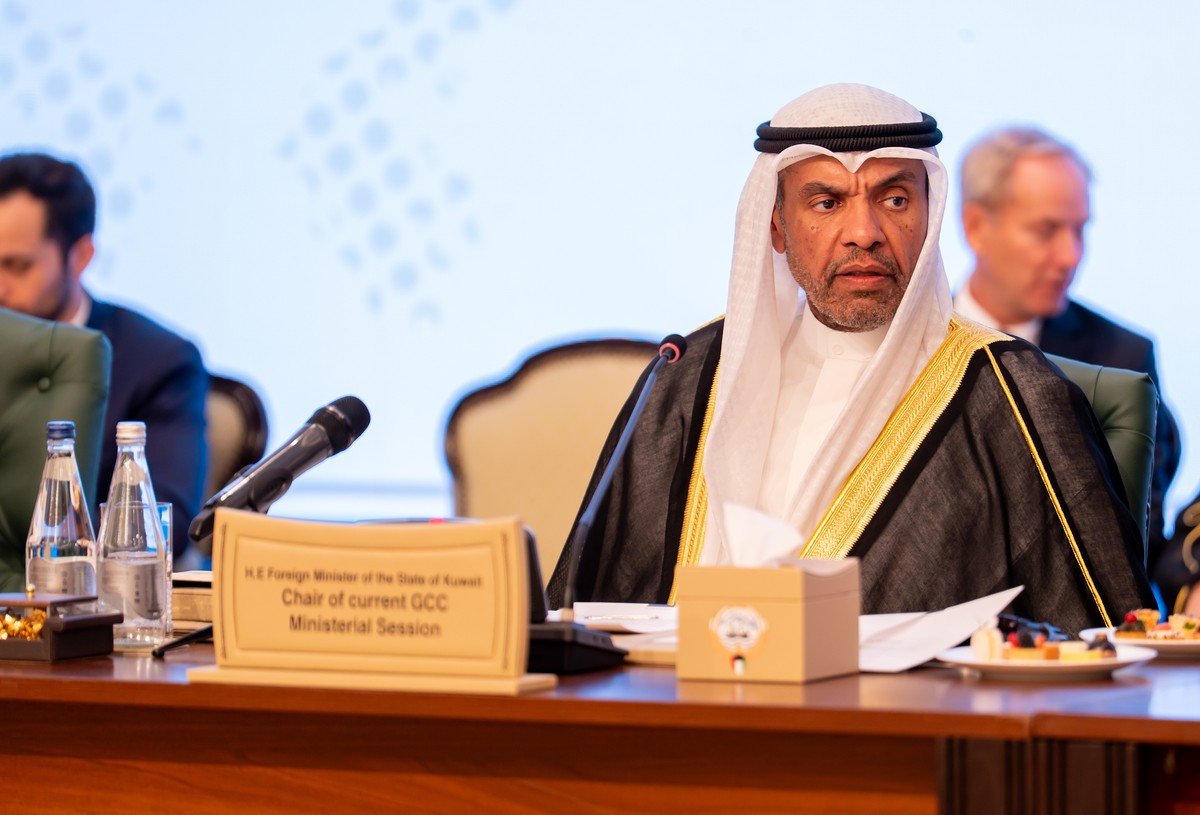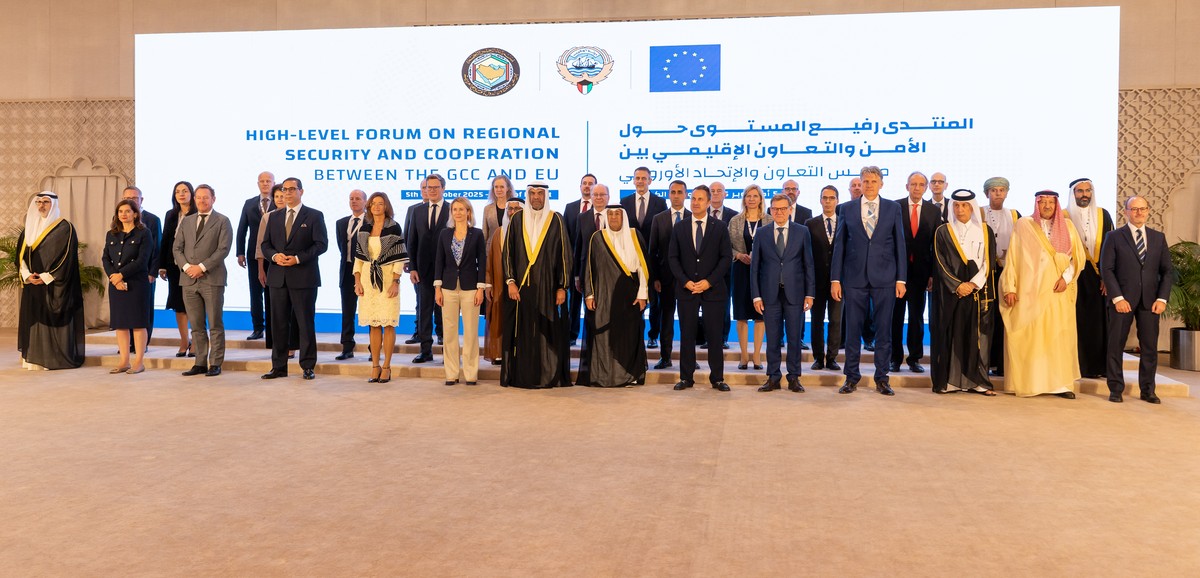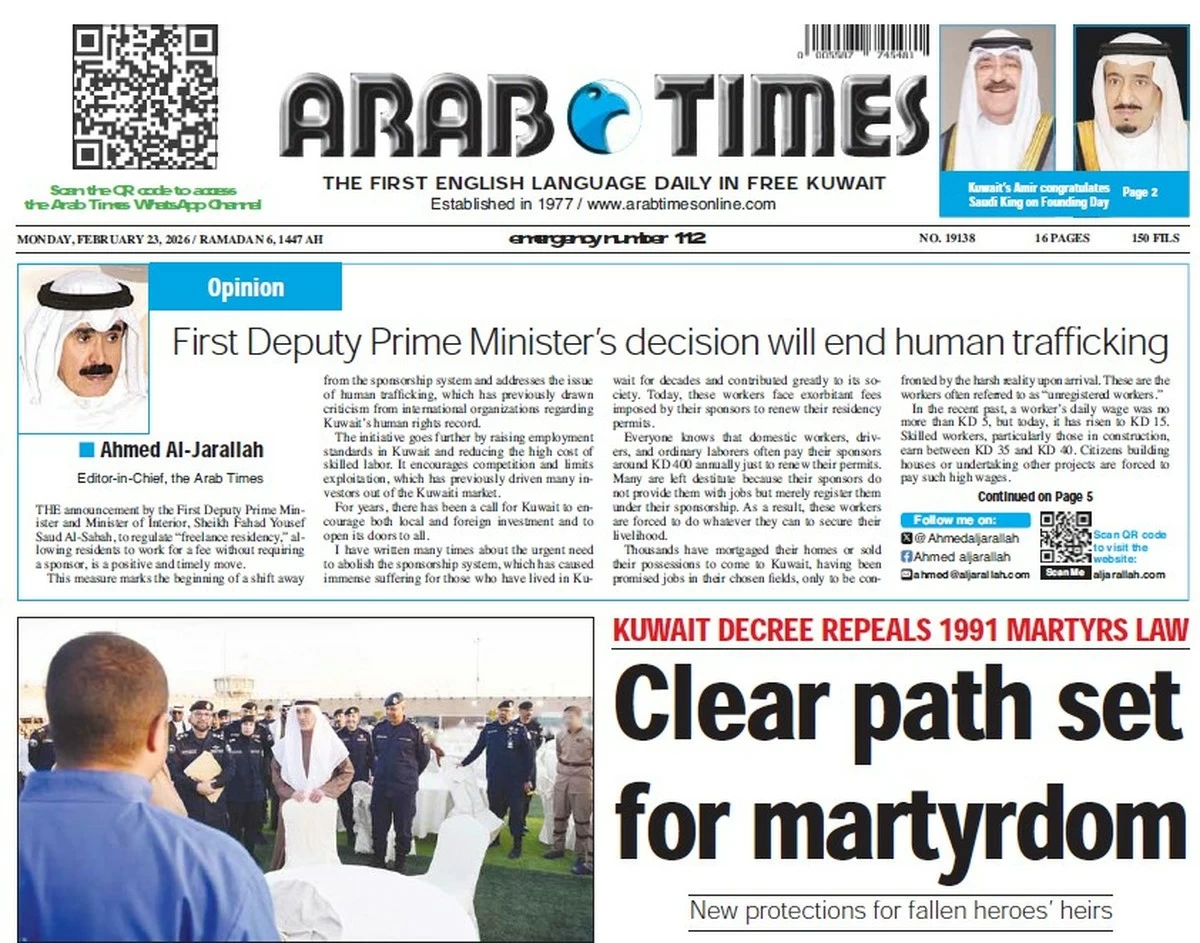06/10/2025
06/10/2025

KUWAIT CITY, Oct 6: Kuwaiti Foreign Minister Abdullah Al-Yahya, in his capacity as Chairman of the Gulf Cooperation Council (GCC) Ministerial Council, affirmed on Sunday that the European Union (EU) is a vital partner in supporting regional stability and reinforcing an international order grounded in respect for international law and non-interference in the internal affairs of states.
Al-Yahya’s remarks came during the opening of the second high-level forum on regional security and cooperation between the GCC and the EU, hosted by Kuwait with the participation of foreign ministers and senior officials from both sides. The forum precedes the 29th joint ministerial meeting between the two blocs, scheduled for Monday.
The forum is co-chaired by Minister Al-Yahya on the GCC side and the EU High Representative for Foreign Affairs and Security Policy and Vice-President of the European Commission, Kaja Kallas, on the European side. GCC Secretary-General Jassim Al-Budaiwi also attended the forum, which serves as a platform for strategic dialogue and cooperation on shared regional and global interests.
Al-Yahya stressed that security cooperation between the GCC and the EU forms a core pillar of their strategic partnership. He highlighted that this cooperation is built on shared values, mutual interests, and a forward-looking vision aimed at addressing global challenges through innovative and clearly defined frameworks.
In his speech, Al-Yahya denounced Israel’s continued attacks, including recent aggression against Qatar, describing them as blatant violations of international law and a direct threat to both regional and global stability. He urged the United Nations Security Council and the international community to take swift and decisive measures to halt these actions.
Reaffirming the centrality of the Palestinian issue, Al-Yahya drew attention to the dire humanitarian conditions in Gaza, citing widespread displacement, destruction, and starvation. He called for an end to Israeli occupation policies and for the immediate and unrestricted entry of humanitarian aid into the besieged Gaza Strip.
In this context, Al-Yahya welcomed the Gaza peace plan announced by US President Donald Trump, viewing it as a significant step toward ending the humanitarian catastrophe and restoring peace and security in the region. He expressed hope that the plan would pave the way for a just and comprehensive solution based on the two-state framework and relevant international resolutions.
He also praised recent decisions by several European nations to recognize the State of Palestine, calling them positive developments reflecting the international community’s growing will to end the suffering of the Palestinian people. He urged other countries to take similar steps in support of a fair resolution to the conflict.
On the issue of Iraq, Al-Yahya reiterated Kuwait’s ongoing efforts — spanning more than two decades— to help Iraq fulfill the aspirations of its people and contribute to regional stability. He called on Iraq to resolve all outstanding bilateral issues in line with international law and United Nations resolutions.
These issues include the return of Kuwaiti prisoners and missing persons or their remains, the restitution of Kuwaiti property, including the national archives, and the completion of maritime border demarcation beyond boundary marker 162. He also urged full implementation of the agreement regulating navigation in Khor Abdullah and the related security protocol.
Al-Yahya emphasized the importance of Iraq’s commitment to Kuwait’s sovereignty, territorial integrity, and adherence to bilateral and international agreements. He said this would help reinforce good neighborly relations and enhance security and stability across the region.
Describing the forum as a high-level platform for dialogue and cooperation, Al-Yahya expressed hope that its outcomes would yield tangible results in addressing current regional and international challenges while meeting shared aspirations.
The ongoing forum is expected to address a broad array of topics, including developments in the Middle East, maritime security, energy cooperation, climate change, and follow-up on the outcomes of the first GCC-EU summit held in Brussels last year. The forum highlights both sides’ continued commitment to protecting sea lanes and maintaining the stability of international trade.
The ministerial meeting scheduled for Monday will serve to further consolidate the strategic partnership between the GCC and the EU.



